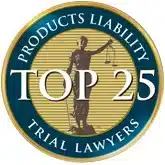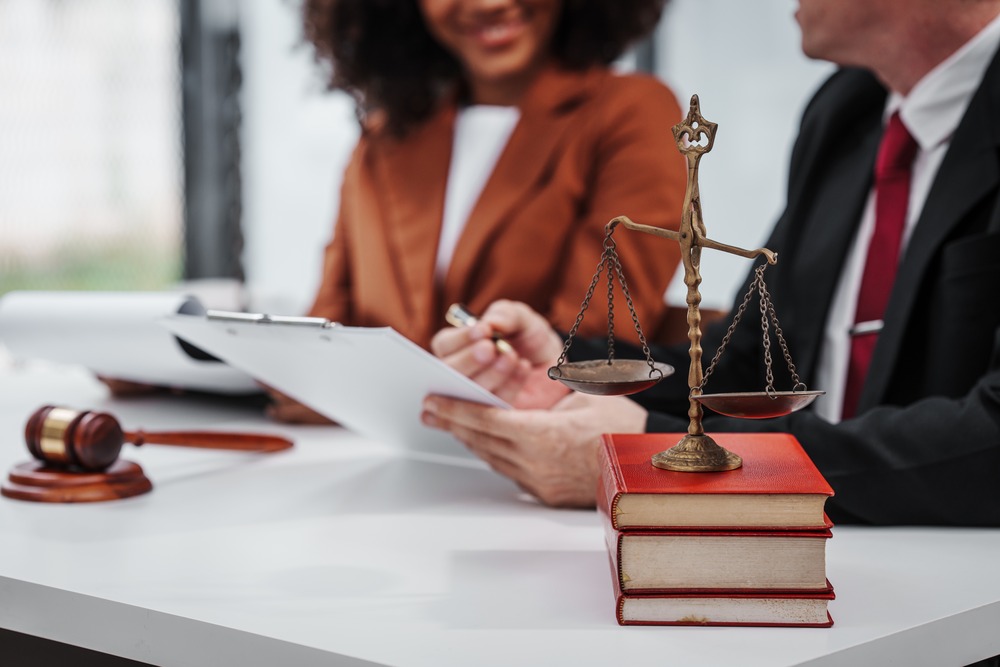Lithium-ion batteries power countless everyday devices, from smartphones to electric vehicles. While these batteries are essential to modern life, they can also pose serious dangers when they malfunction. Exploding batteries have caused severe injuries, property damage, and even deaths, creating physical, emotional, and financial burdens for victims. If you or a loved one has been injured in a lithium-ion battery fire, you may have grounds to recover compensation through a product liability claim.
What Are Lithium-Ion Batteries?

Lithium-ion batteries are rechargeable power sources found in numerous devices, including laptops, smartphones, power tools, and electric cars. They are favored for their ability to store large amounts of energy in a compact form, providing efficient and long-lasting power. However, the very design that makes them so powerful also makes them susceptible to failure.
Why Do Lithium-Ion Batteries Fail?
Lithium-ion batteries can become hazardous if they are poorly manufactured, improperly used, or damaged. Understanding the causes of battery fires can help you identify who may be liable for your injuries. Here are some common reasons lithium-ion batteries fail:
- Overheating: One of the most prevalent causes of battery fires is overheating. When a battery gets too hot, it can enter a state known as thermal runaway, where its temperature increases uncontrollably, causing it to catch fire or explode.
- Physical Damage: Dropping, crushing, or puncturing a battery can compromise its internal structure, making it more likely to short-circuit and ignite.
- Manufacturing Defects: Flaws during the manufacturing process can lead to a battery that is unstable or prone to failure. Defects in the materials used or mistakes during assembly can create dangerous conditions.
- Design Flaws: Poorly designed batteries may lack adequate safety features or fail to account for various usage scenarios.
- Using Incorrect Chargers: Charging a lithium-ion battery with a non-approved or incompatible charger can cause excessive heat buildup, leading to fires.
- Short Circuits: Internal short circuits can occur when battery cells come into contact due to poor design, damaged insulation, or manufacturing defects. This can cause a sudden release of energy, sparking a fire.
- Improper Use: Charging a battery overnight or exposing it to extreme temperatures can put unnecessary stress on the battery, increasing the risk of fire.
- Counterfeit Products: Fake batteries often lack essential safety features and quality control measures.
The Dangers of Lithium-Ion Battery Fires
Lithium-ion battery fires pose unique dangers that set them apart from other types of fires:
- Difficult to Extinguish: These fires are notoriously challenging to put out. Water and standard fire extinguishers are often ineffective and can even exacerbate the situation.
- Toxic Fumes: When lithium-ion batteries catch fire, they release toxic gases that can be harmful when inhaled.
- Risk of Reignition: Even after a fire is thought to be extinguished, lithium-ion batteries can reignite, posing an ongoing threat to anyone nearby.
The consequences of lithium-ion battery fires can be severe. Victims often suffer from burns, respiratory issues from inhaling toxic fumes, and emotional trauma. Hospitalization, extensive medical treatments, and time away from work are common, leaving individuals overwhelmed by their circumstances.
The Impact of Lithium-Ion Battery Fires
The consequences of these fires can be devastating and far-reaching:
Physical Injuries
- Severe Burns: Direct contact with burning batteries or their contents can cause deep, painful burns.
- Respiratory Issues: Inhaling toxic fumes can lead to both short-term and long-term lung damage.
- Eye Injuries: Chemical splashes or smoke can cause vision problems or permanent eye damage.
Property Damage
- Home Fires: A single defective device can ignite, potentially destroying entire homes.
- Vehicle Damage: Electric vehicle battery fires are particularly challenging to extinguish and can result in total loss.
- Business Losses: Commercial properties housing large quantities of lithium-ion batteries face significant fire risks.
Emotional Trauma
- Psychological Impact: Experiencing a sudden fire or explosion can lead to anxiety, PTSD, and other mental health issues.
- Loss of Irreplaceable Items: Family heirlooms, photos, and other sentimental items may be destroyed.
Understanding Product Liability for Lithium-Ion Battery Fires
When a lithium-ion battery causes a fire, the manufacturer, distributor, or retailer may be held responsible under product liability laws. These laws are designed to protect consumers from defective products and ensure that companies are held accountable for the safety of their goods. Product liability claims involving lithium-ion batteries typically fall into one of three categories:
Manufacturing Defects
If a battery was improperly assembled or contained faulty components that caused it to malfunction, the manufacturer might be liable. These defects often result from errors in the manufacturing process or the use of substandard materials.
Design Defects
A design defect occurs when the battery’s design is inherently dangerous, even if manufactured correctly. Design defects can make batteries prone to overheating, short-circuiting, or other hazardous conditions.
Failure to Warn
Companies that fail to provide adequate warnings or instructions for safe use may be held liable. This includes not warning consumers about potential risks or not providing guidelines for avoiding dangerous scenarios.
Who Can Be Held Liable for Lithium-Ion Battery Fires?
Several parties along the supply chain could be held liable for injuries caused by lithium-ion batteries:
- Manufacturers: If a manufacturing defect causes the battery to fail, the manufacturer is usually the primary liable party.
- Retailers and Distributors: Companies that sell defective products or fail to provide adequate warnings can be held responsible, even if they did not directly manufacture the battery.
- Designers: If the design of the battery is flawed, designers may be held liable for their role in creating a hazardous product.
What to Do If You’ve Been Injured by a Lithium-Ion Battery
Experiencing a lithium-ion battery fire can be traumatizing, but taking swift and decisive action can help protect your rights and build a strong case for compensation.
- Seek Medical Attention: Your health is the priority. Seek immediate medical attention, even if your injuries seem minor. Burns and inhalation injuries can worsen over time, and prompt treatment can prevent complications.
- Preserve Evidence: Keep the damaged device, battery, charger, and any other related components. Avoid altering the items, as they will serve as critical evidence in your case. If it is safe to do so, take photos or videos of the scene.
- Document Your Injuries and Expenses: Keep detailed records of your injuries, medical treatments, and any expenses incurred due to the incident. This documentation will be essential in demonstrating the impact of the battery fire on your life.
- Consult a Personal Injury Attorney: An experienced personal injury attorney who handles product liability claims can help you navigate the complexities of your claim. They will review the evidence, consult experts, and identify all parties that may be liable for your injuries.
Types of Compensation You May Be Entitled To
If a lithium-ion battery fire has caused injuries or other damages, you may be entitled to various forms of compensation through a product liability lawsuit. Potential damages include:
- Medical Expenses: Compensation for current and future medical treatments, including hospital bills, surgeries, medications, and physical therapy.
- Lost Wages or Income: If your injuries prevent you from working, you may recover compensation for lost income and reduced earning capacity.
- Property Damage: If your property was damaged or destroyed in the fire, you could be compensated for repairs or replacement.
- Pain and Suffering: Compensation for physical pain, emotional distress, and the overall impact of the injury on your quality of life.
- Punitive Damages: In cases of particularly egregious conduct by the manufacturer or another party, you may be awarded punitive damages designed to punish the responsible party and deter future negligence.
Building a Strong Product Liability Case

To successfully pursue a lithium-ion battery fire lawsuit, you must build a compelling case that clearly demonstrates the manufacturer’s or other responsible parties’ liability. This process involves proving several key elements:
Proving the Defect
The cornerstone of any product liability case is showing that the lithium-ion battery had a defect. This includes demonstrating that the battery or device containing it had a flaw in design, manufacturing, or warnings.
Demonstrating the Battery’s Defect Directly Caused Your Injuries
Establishing a direct link between the defect and your injuries is crucial. You must show that the battery’s defect was the primary cause of the fire that led to your injuries or damages.
Proving Your Use Was Reasonable and Foreseeable
To win your case, you must demonstrate that you were using the battery as intended or in a way that was reasonably foreseeable. For example, if you were charging your smartphone or using a power tool in the way the manufacturer recommended, it strengthens your claim. If the battery fire occurred under normal or foreseeable conditions, liability is more likely to be established against the responsible party.
Showing Actual Damages or Harm
To be compensated, you must provide evidence of actual damages or harm resulting from the defective battery. This includes medical records showing burn injuries, property damage receipts, lost income, and documentation of pain and suffering. Without tangible evidence of harm, it will be challenging to secure compensation, even if the battery is defective.
Establishing Negligence or Strict Liability
In product liability cases, you can pursue claims under negligence or strict liability theories. Strict liability means you do not have to prove the manufacturer was careless—only that the product was defective and caused your injuries. Negligence claims require demonstrating that the manufacturer failed to exercise reasonable care during the product’s design, manufacturing, or labeling process. Your attorney will determine the best legal strategy based on your specific circumstances.
Collecting Evidence to Support Your Case
A strong product liability case relies on comprehensive evidence. Key evidence might include:
- Photos and videos of the damaged device, surrounding area, and your injuries
- Medical records documenting your injuries and treatment
- Expert testimony from engineers, fire investigators, or battery specialists
- Witness statements from anyone who saw the incident or its aftermath
- Purchase receipts and product documentation
- Any communication with the manufacturer or retailer about the product
By building a case that addresses these elements, you increase your chances of holding the responsible parties accountable and securing the compensation you deserve. The legal process may be complex, but with a dedicated attorney by your side, you can navigate the path to justice with confidence.
How an Attorney Can Help You Pursue Justice
A product liability lawsuit can be daunting, especially when dealing with large manufacturers and their insurance companies. An experienced attorney can provide the guidance and support you need to fight for your rights:
- Thorough Investigation: Your attorney will conduct a comprehensive investigation to uncover the cause of the battery failure and identify the liable parties.
- Expert Testimony: To strengthen your case, your attorney may collaborate with medical, engineering, and forensic experts who can explain how the battery’s failure led to your injuries.
- Negotiation with Insurance Companies: Insurance companies often try to minimize payouts or deny claims altogether. Your attorney will negotiate on your behalf to secure the compensation you deserve.
- Trial Representation: If a fair settlement cannot be reached, your attorney will represent you in court, fighting relentlessly for justice.
Get Justice, Get Paid
If a lithium-ion battery fire has injured you, you deserve to hold the responsible parties accountable and seek the compensation you need to recover. At Wilshire Law Firm, we are relentless in our pursuit of justice for those injured by defective products.
Our team of experienced personal injury attorneys understands the complex nature of product liability claims and will fight tirelessly to protect your rights. We have helped clients recover over $1 billion in compensation, and we are here to help you, too.
Contact Wilshire Law Firm today at (213) 335-2402 or through our online form for a free and confidential consultation and learn how we can help you get the justice and compensation you deserve.










